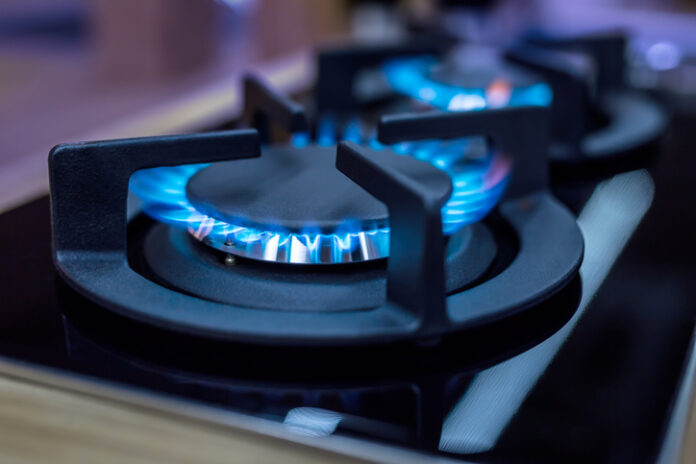Spokane Superior Court Judge Charnelle Bjelkengren ordered the city auditor not to place a citizens’ initiative, the Spokane Cleaner Energy Protection Act, on the November ballot.
The initiative was written and promoted by group of Spokane citizens, calling themselves the Spokane Good Government Alliance (SGGA), which includes members of the Spokane Home Builders Association (SHBA). The SGGA was formed specifically to draw up an initiative aimed at preventing the Spokane city council from adopting an ordinance to ban new natural gas connections by 2023.
The proposal also countenances mandating every home in the city install solar panels, among other actions to make progress towards the Washington state’s climate action plan.
The citizen group had gathered over 6,000 signatures to get their proposed ordinance on the November ballot.
In an August 26 decision, Bjelkengren ruled the initiative was invalid and forbad the city auditor from enrolling it on the ballot for consideration.
Stealth Ordinance
Members of the SGGA discovered Spokane’s city council had created a “Sustainability Action Subcommittee,” which, although listing no meetings or members, was had developed a plan for the city council in line with Gov. Jay Inslee’s state climate plan. The natural gas ban was part of the subcommittee’s plan to show progress toward meeting the state climate plan. The city council has yet to unveil its detailed proposed changes to the city charter, but the plan only came to public attention because of the ballot initiative effort.
After it became clear SGGA had enough signatures to qualify the initiative for the ballot, just weeks before the deadline for finalizing the city ballot, city council member Katherine Burke and Protect Spokane Action sued to block the initiative from a being placed on the ballot for a public vote.
Burke argued citizens have no direct right to oppose the city council’s plans to implement state climate policy.
Spokane Copying Seattle
Inslee’s effort to impose a statewide ban on new natural gas hookups during the 2021 legislative session, was rejected by the legislature in response to objections expressed by natural gas companies, business associations, consumers, and pipefitters who raised concerns that the Pacific Northwest electric grid would be unable to handle such a huge increase in winter heating load, along with charging facilities for electric vehicles, absent the use of natural gas.
In setting up its Sustainability Action Subcommittee, Spokane’s City Council followed the example set by the Seattle City Council, creating the subcommittee in private, providing no list of its members, and holding no public hearings on the climate and energy related changes to the city’s charter that it was developing.
Citizens Organize for Choice
When Jennifer Thomas, a mother of four, Isaiah Paine, and several others discovered the subcommittee existed and was working a climate plan that included a ban on new natural gas hookups, they crafted the initiative to fight for consumer choice.
The city council has no idea of the cost or even the feasibility of replacing natural gas energy with renewable-based electricity to heat homes and run gas appliances, says Thomas.
“This is about a political agenda, with council members seeming not to care that such a ban would impose huge additional costs on homes and diminish local housing affordability,” said Thomas. “If they put a ban in place they are blocking citizens from being able to choose or even afford a home.
“Worse, Avista Utilities, the city’s gas and electric utility company, would still have to convert natural gas firing its boilers to electricity, adding significant costs for consumers without any carbon benefit,” Thomas said.
Secretive Plan
The city’s secretive subcommittee and plan, developed without any public knowledge or input, would harm residents in a city where temperatures range from minus 10 to 110 degrees, and where local hospitals rely on natural gas to keep life-saving equipment operational during power outages, said Paine, who is the SHBA’s government affairs director.
“This is a very costly and detrimental idea,” said Paine. “Even the utilities are worried this could triple electricity utility rates in the area, driving many out of existing homes and keeping others from home ownership indefinitely.
“The city council’s fly-by-night advisory subcommittee was set up to keep ordinary citizens shut out of the entire process,” Paine said. “And the council was ready to rubber stamp whatever the hand-picked panel recommended.”
The SGGA filed for a stay of Bjelkengren’s ruling, on August 30, requesting the initiative to be placed on the ballot, pending the conclusion of further legal action.
Discouraging Ruling, Encouraging Effort
The judge’s decision to not allow the public to have the final word on this matter was unjustified and inexplicable, says Jay Lehr, Ph.D., senior policy advisor with the International Climate Science Coalition, but he says it is encouraging to see average people standing up against the powerful Washington State cabal of climate extremists.
The judge’s decision was reprehensible, blocking residents and businesses from having a direct say on so important a matter as their energy use,” said Lehr. “Having said that, because Washington state is among the most liberal states in the nation, it is refreshing to see a movement in Spokane to prevent the local government of depriving its citizens of the use of inexpensive and safe fuels, such as natural gas.
“Replacing cheap, reliable gas with expensive, undependable wind and solar is impossible if the standard of living of its citizens is not to be sent back to the 19th Century,” said Lehr.
Duggan Flanakin (dflanakin@gmail.com) writes from Austin, Texas.


























